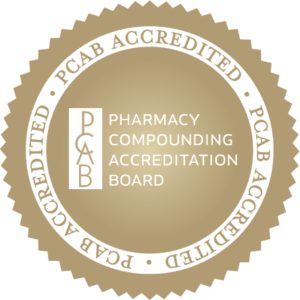When it comes to getting the right pharmaceutical treatment, compounding pharmacies and retail pharmacies are not the same. Here are the top 5 ways to compare compounding pharmacy vs retail pharmacy, in no particular order:
- Customized medication strengths
- Customized formulation
- Personalized treatment for common but hard-to-treat illnesses
- Unavailable medications and specialized dosages retail pharmacies can’t handle
- Better Access to critical medications
1. Customized medication strengths
Retail pharmacies dispense drugs and medical supplies in the forms and strengths that are provided by drug manufacturers. Prescribing physicians have few options when using a retail pharmacy if a patient needs a medication outside of its available form or strength. That’s where a compounding pharmacy can be an effective partner.
2. Customized formulation
At the direction of a prescribing healthcare professional, a compounding pharmacist provides medication solutions that are customized to individual patient needs. A patient with tolerance issues such as allergies to components of a commercially available medication can get medication formulated with the same or similar essential ingredients with non-essential ingredients and allergens removed.
3. Personalized treatment for common but hard-to-treat illnesses
A compounding pharmacy is often involved in the treatment plan for chronic illnesses that typically have few treatment options. An example would be autoimmune diseases. Prescribers are finding that off-label uses of some commercial medications such as Low Dose Naltrexone (LDN) have been very effective in treating autoimmune disorders. LDN is only available through a compounding pharmacy. Highly trained compounding pharmacists work with state-of-the-art equipment to provide treatment options otherwise unavailable to patients.
4. Unavailable medications and specialized dosages retail pharmacies can’t handle
When a patient’s clinical picture requires customized medication because either the prescribed dosage is not available, or because the medication is not available at all, the services of an Rx compounding pharmacy are needed. A compounding pharmacy is equipped to provide the prescribed medication in the dose AND dosage form requested in order to optimize pharmaceutical care. Different dosage forms can include gels, troches, oral capsules, sprays, sterile eyedrops, injections, and more.
Specialized dosages routinely benefit patients of doctors, dentists, and even veterinarians, as compounding pharmacies create customized medicines for patients of all types.
5. Better Access to critical medications
One of the myths about medications from a compound pharmacy is that they are very expensive. In reality, compounded medications may be a similar expense to commercially available drugs. In some cases, the compounding pharmacy is producing medication at a different, less expensive dosage than a retail pharmacy. Compounded medications might be covered by insurance, and if not, a compounding pharmacy will work with your prescriber to identify a robust compounded therapy at an affordable price.
Compounding pharmacies readily have the pure ingredients necessary for your doctor’s specific prescription. Many medications today are not easily found in retail pharmacies. Your compounding pharmacy will be able to follow your doctor’s prescribed medication and preferred dosage type. This gives you, the patient, a better ‘fit’ medication and access to the critical medicine you need.
Health Dimensions Clinical Pharmacy has been providing pharmaceutical and health solutions since 1996. Health Dimensions is located in Michigan and serves states in the Great Lakes region. Health Dimensions Clinical Pharmacy was among the nation’s first compounding pharmacies to earn accreditation by the Pharmacy Compounding Accreditation Board (PCAB) of the Accreditation for Healthcare Commission (2006). Our mission is to partner with healthcare providers to provide service excellence, accuracy, and rapid response for improved patient outcomes.
To learn more about building a partnership, call Health Dimensions Clinical Pharmacy at (800) 836-2303 or request a consultation.











